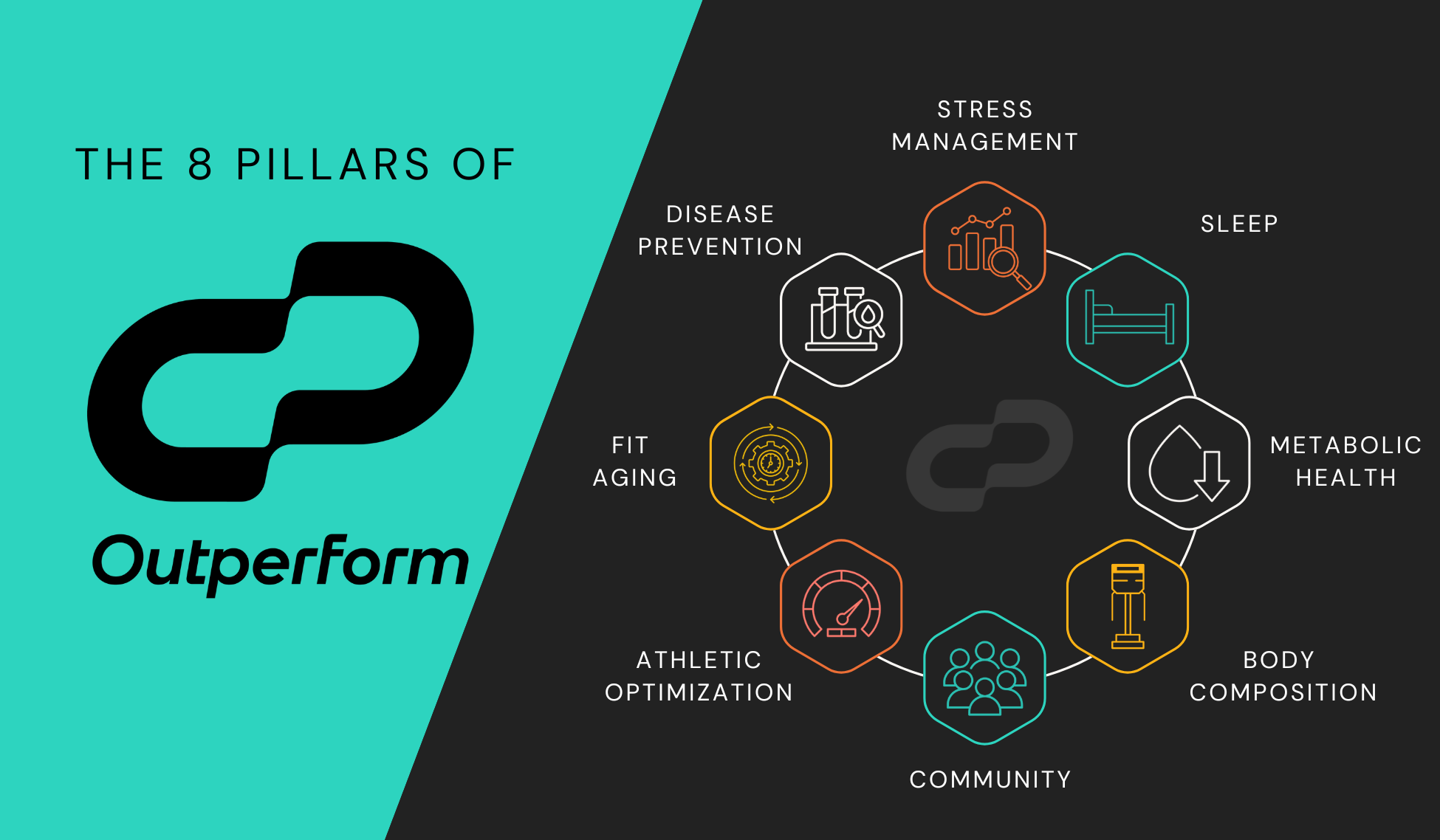Seventeen years ago, I left a large medical group to launch my concierge medical practice. I wanted to work for my patients, not insurance companies.
The new financial model of care allowed me to preserve the core principles of Internal Medicine:
- Commitment to prevention
- Thorough evaluations
- Long-term relationships with patients
- Intellectual depth in problem-solving
- Enthusiasm for medicine
As a concierge doctor, I felt like an endangered species surviving in a protected enclave that escaped the habitat destruction insurance-based medicine wrought. The demand for this level of care continues to grow, far exceeding my capacity.
Creating Banner Peak Health and partnering with stellar doctors has allowed me to expand the number of patients who benefit from old-fashioned, state-of-the-art Internal Medicine.
Over the last few years, I’ve realized that patient-funded care preserves high-quality Internal Medicine and provides the foundation for incorporating new technology and techniques into our practice.
I’ve written about the concept of “diagnostic deserts.” Numerous medical diagnoses exist for which there are no lucrative drug or surgical treatments and, hence, are not adequately addressed in traditional medicine.
Unfortunately, these are not rare conditions. For example, anyone with insomnia, chronic pain, or menopausal symptoms has most likely experienced this issue. Fortunately, concierge medicine creates a new opportunity for more healthcare options.
Going Beyond Concierge Medicine to Outperform
I’ve dedicated the next phase of my career to identifying, learning about, and implementing new medical approaches for patients at Banner Peak Health. The rapid development of new technology and the clinic’s financial structure have made this innovation possible. There are no diagnostic deserts in concierge medicine.
That’s why I’m introducing the Outperform program — to enable Banner Beak Health patients to take the next step and go beyond conventional medicine. We’ll help our members achieve optimal performance in eight key areas:
- Stress management
- Sleep
- Metabolic health
- Body composition
- Community
- Disease prevention
- Athletic optimization
- Fit Aging
The Eight Pillars of Outperform
The following discusses the innovations we’re developing in the eight categories:
1) Stress Management
Everyone agrees that excessive chronic stress is bad for your health. Most of us are very aware of what causes stress in our lives. Until now, we lacked a means of quantifying our stress. It’s been said, “You can’t manage what you can’t measure.”
Prior blog posts have emphasized the value of metric-driven empowerment cycles (MDECs). By measuring a health outcome, you enable efforts to determine the best interventions to improve it.
Recent wearable devices, such as the Oura ring, have allowed accurate and convenient determination of heart rate variability (HRV), which provides a quantitation of how our bodies react to stress.
By recording daily HRV values, you can analyze the effects of the myriad factors that influence stress, such as alcohol, meditation, sugar ingestion, exercise, sleep, and more. HRV analysis is a novel and unique stress management tool.
2) Sleep
Adequate quality and quantity of sleep is the bedrock of physical and emotional well-being — a statement anyone suffering from sleep impairment intuitively understands.
Fortunately, we’re amid a sleep medicine revolution, driven by the advent of inexpensive, convenient, and accurate home sleep testing. What once required 22 wires and an overnight stay in a sleep lab can now be accomplished by wearing a rubber ring — SleepImage device — that communicates with your smartphone and which you can wear at home nightly.
We partner with Empower Sleep, a telehealth sleep medicine clinic, to offer a one-month home sleep Discovery Program. This allows us to diagnose previously unknown sleep impairments and assess the adequacy of treatment for known disorders like sleep apnea.
Unfortunately, obstructive sleep apnea (OSA) is a common disorder affecting at least 10% of adults. Most are unaware of their diagnosis. Of those diagnosed, 33% to over 50% can’t tolerate the first-line treatment, a continuous positive airway pressure (CPAP) device.
Using the SleepImage device and working with Empower Sleep, we can diagnose clinically important occult causes of sleep impairment. Also, by wearing the device nightly, we can use trial and error to try multiple lower-intensity treatments for mild-to-moderate OSA and find solutions instead of using a CPAP device.
3) Metabolic Health
About 98 million adults (or one in three) in the U.S. have prediabetes, according to the CDC. The vast majority are unaware that they have this serious risk factor for multiple other illnesses, such as stroke and heart attack.
At Banner Peak Health, we monitor for the earliest evidence of impairment in metabolic health, checking fasting glucose levels, insulin levels, hemoglobin A1c, and patterns in lipid levels that suggest prediabetes.
While the medical profession is responsible for diagnosing prediabetes, treatment requires committed effort by the individual. There’s no drug-based treatment. Reversing prediabetes requires reducing caloric intake, increasing energy expenditure, and possibly even modifying the bacteria in your digestive tract.
We use state-of-the-art tools to help individuals optimize their metabolic health. Everyone has unique blood sugar physiology, and regarding dietary advice, one size does not fit all. We assist patients in using continuous glucose monitors (CGMs) to record sugar levels in real time, allowing them to identify which foods and activities affect their blood sugar levels.
We’ve been among the first to recommend probiotics from the manufacturer Pendulum, such as Glucose Control, which is shown to lower blood glucose levels.
We’re developing protocols to use Zone 2 training to reprogram mitochondrial function to restore metabolic health.
4) Body Composition
Knowing your weight is important — so is knowing your body composition, or “what you’re made of.” Our bodies consist of muscle, fat, bones, connective tissue, organs, and fluid.
We now use InBody devices, which use bioelectrical impedance analysis to determine fat, muscle mass, and fluid mass. Each component has important health consequences.
We can usually infer excess body fat from a traditional scale. An InBody analysis provides insight into muscle mass, which we can’t determine from a traditional scale. As a result, we’ve made many startling discoveries.
Those with excess fat mass may also have substantial muscle mass (i.e., hidden athletes). More commonly, in older adults, we see sarcopenia (i.e., insufficient muscle mass). This hidden finding correlates with poorer health status during the aging process.
Having diagnosed sarcopenia, we can create a treatment program centered on increasing dietary protein intake and muscle-strengthening exercise programs. We can track progress over time using InBody measurements.
5) Community
Yes, community is a medical topic. Our current surgeon general, Dr. Vivek Murthy, launched a program addressing the loneliness epidemic in the U.S.
Loneliness has dire medical consequences. Conversely, studies of successful aging identify ample social connection as a key ingredient. How connected we are to others impacts our physical and emotional health.
I envision the Outperform program as an opportunity to build a community around the shared goal of prevention. In medicine 2.0, the disease treatment model, care most often involves an individual in a room with a doctor.
But is that the best structure for medicine 3.0, prevention-based medicine? Many prevention-based endeavors are social, such as eating, exercising, learning, and relaxing. Why not create a program of shared activities to enhance health?
In 2025, the Outperform program will include activities to enhance physical and emotional well-being. Patient interest will determine the final set of offerings.
We’re considering yoga, meditation, Pilates, rucking (hiking with a backpack), walking, and biking. Please contact us and tell us what group health activity you’d sign up for.
6) Disease Prevention
What if the best dishes aren’t on the menu?
Unfortunately, insurance funding for preventative medicine often lags years or decades beyond the development of new medical technology.
Banner Peak Health isn’t constrained by insurance reimbursement. We can implement the most up-to-date and effective techniques to keep you well.
Most people know that their cholesterol levels relate to their risk of coronary artery disease. This connection comes from our understanding of epidemiological studies evaluating large numbers of people and linking risk factors, such as elevated cholesterol, with bad outcomes, such as heart attacks.
Rather than relying only on statistical models, we now have technology to assess risk more accurately by examining an individual’s coronary artery anatomy, using low-dose CT scans to look for calcification associated with coronary artery atherosclerosis. We can refine a statistical estimate by imaging your own anatomy, leading to a more accurate understanding of your risk and better guiding treatment to reduce it.
Insurance covers basic cancer screening technologies that have existed for decades, such as Pap smears, mammograms, and prostate-specific antigen (PSA) blood tests. However, insurance doesn’t cover the Galleri cancer screening test. This revolutionary new test can detect over 50 types of cancer by identifying trace amounts of cancer DNA shed into the blood, a tenfold increase in the number of cancers we currently can detect by screening.
We recommend the Galleri cancer screening test in our patients over 50 years old or who have a family history of early cancer. We’ve diagnosed early cancer in patients that other means hadn’t detected.
7) Athletic Optimization
As mentioned, the funding source can dictate the content of healthcare offered. Sports medicine has evolved as a predominantly self-funded discipline, with athletes and teams paying for the latest technological advances.
Unfortunately, I’ve noticed distinct silos of information between sports medicine and Internal Medicine. I envision the Outperform program as a synthesis of the two.
For example, exercise — both aerobic and strength training — is the most effective treatment for reducing the risk of diabetes. Rather than non-specific advice to “get more exercise,” the Outperform program will allow us to create evidence-based, individualized training programs and measure their effectiveness.
Outperform will bring medical expertise to the challenge of maximizing recovery from workouts. Trick question: Does performing a running or weightlifting workout make you faster or stronger? The answer is no.
Workouts create a stimulus for your body. With adequate recovery, your body can respond to this stimulus and improve your level of function through improved cellular function.
Without adequate recovery, training stress can degrade your body rather than improve it. Thus, a workout alone doesn’t improve your fitness level.
Sports medicine advises on how to train. It tells you how many reps to do, how heavy the weights should be, and how long to rest between sets. However, it doesn’t give much advice about how to get the best recovery, especially when it comes to sleep.
Adequate quantity and quality of sleep is vital for optimal recovery. Hormones such as human growth hormone and testosterone are secreted naturally at night in proportion to how much we sleep.
The advice to “get more sleep” might be adequate for a younger athlete. But athletes in their 40s, 50s, and beyond often have trouble sleeping. Since sleep is necessary for optimal recovery, it’s essential that older athletes talk to their doctors if they have difficulty sleeping.
Athletic optimization requires a community of ancillary services working together. The Outperform program will include access to fitness instructors, nutritionists, coaches, and physical therapists to create a comprehensive program.
Over time, the Outperform program will expand to include sports physiology testing programs to provide state-of-the-art assessment for Zone 2 and VO2 max, enabling the targeting of training regimens.
8) Fit Aging
You’re never too old to benefit from exercise! In fact, the value may increase as we age.
Traditional healthcare emphasizes treating existing diseases such as high blood pressure and coronary artery disease.
Yes, avoiding complications from existing diseases is important. However, maximizing functional capacity remains paramount as we get older.
Can I lift a suitcase, walk to the park, lift a grandchild, avoid falls in the dark, stand in the shower, and perform a myriad of other tasks that define our lives? Unfortunately, traditional medicine woefully neglects this aspect of aging. Medications alone don’t allow us to vibrantly embrace life decade after decade.
At present, exercise is the closest we have to the mythical “fountain of youth.” Training your body accomplishes what no pill can.
The Outperform Fit Aging program begins with a structured assessment of your baseline status: your body composition, strength, agility, and balance. We then create a custom program incorporating nutritional advice, exercise classes, and fitness training.
Using a metric-driven empowerment cycle (MDEC), we can repeat your baseline measurements, hold you accountable, and track your progress. We’ll support your journey to enhancing and preserving your body’s functional capacity.
Today’s Takeaways
Outperform encompasses many new areas of growth for Banner Peak Health. We’ll integrate many aspects into clinic appointments at our current location; others will require more space and new equipment.
To that end, we’re opening an additional location across the street at 1575 Treat Blvd. It has the space for group classes, exercises, specialized testing equipment, and treatments. We’ll soon finalize the details regarding the techniques, tools, and equipment we’ll use and recommend.
We’ll have a new logo for Outperform and lots of fun swag to help establish our new brand of medicine.
Everyone’s welcome to join us on this innovation journey at Banner Peak Health.

Barry Rotman, MD
For over 30 years in medicine, Dr. Rotman has dedicated himself to excellence. With patients’ health as his top priority, he opened his own concierge medical practice in 2007 to practice medicine in a way that lets him truly serve their best interests.




